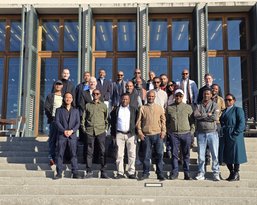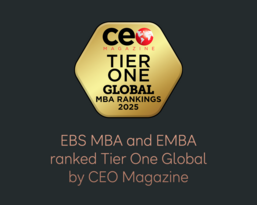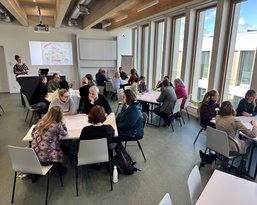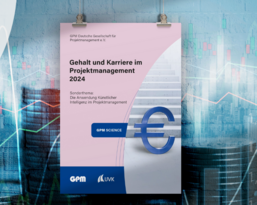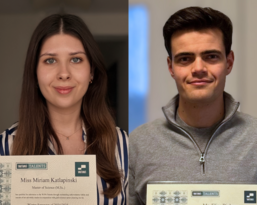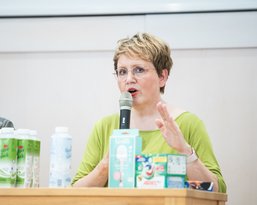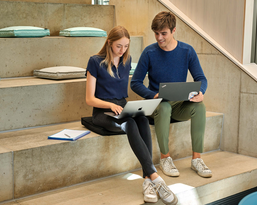![[Translate to English:] News_Hamann_IT_Rechtspreis](/fileadmin/_processed_/f/1/csm_IT-Rechtspreis_c26746d2d5.jpg)
EBS alumnus Philipp Harders raises 2.2 million euros
EBS graduate Philipp Harders and his co-founder Daniel Wiens have raised 2.2 million euros in a funding round with their start-up Lora.

The investors include Clark founder Marco Adelt and doktor.de founder Susanne Kreimer. We congratulated them and talked to Philipp about their digital dental practice Lora and its start-up process.
How does Lora differ from traditional dental practices and how do you make dentists’ everyday work easier?
We know that nobody likes going to the dentist’s. Laborious appointment booking, waiting times, well-thumbed magazines in the waiting room, non-transparent costs… These are just a few of the many things that get on patients’ nerves. On the other hand, oral health is key to us. We use our mouths to eat, breathe, kiss and talk. That is why we have reinvented the visit to the dentist, with the targeted use of technology and by focussing on the patient. We support the doctors’ daily work with the help of very modern software and tools, most of which we have developed ourselves and already tested in three dental practices. The key focus here is on data-driven process optimisation and automating analogue tasks.
How do you redefine the dentist visit from scratch?
Easy to understand, transparent and state-of-the-art, that how a visit to the doctor should be today. Since, on average, we are getting healthier, it is all about prevention, to preserve our health in the long term. Another field we focus on is aesthetics. After all, we all love the feeling of freshly cleaned, straight, white teeth. All scientifically based. Done by specialists with state-of-the-art instruments. Patients can use the Lora app to obtain information about their oral hygiene, book treatments and talk to our specialists remotely. Everything in plain language and with transparent pricing. Nothing you don’t need, everything you really want as a patient.
How did the idea for Lora come about?
Before founding Lora, I was Chief of Staff at Heidelberg-based Insurtech Getsafe. I regularly exchanged ideas on business models and what was happening in the market at the time with Christian Wiens, CEO at GetSafe. At some point we realised that we both have a brother who is a dentist and that we share a passion for healthcare. So, things took their course and, together with Christian’s brother Daniel, we decided to found Lora.
What was your vision when you founded Lora in 2020 in Heidelberg? What drives you today?
We are driven by the fact that we want to improve health and well-being. However, we know the problems in the market. Practice owners are getting increasingly older, are often not open to innovation through software and are having difficulties finding young dentists to take over their practices. Therefore, it is really urgent to find a new model of dental practice to achieve our vision.
What were your biggest challenges and your greatest successes when developing Lora?
Our biggest challenges have all had to do with getting very deep into the value chain and actually running our own practices with large teams. For us founders, the greatest successes are when we read positive reviews from our patients who feel very much at home with us and are finally happy to take regular care of their oral health.
What were the most significant milestones and turning points in your career?
The most important turning points always came when I asked myself whether what I am currently doing and pursuing really fits my interests, strengths and goals in life. Having courage to go your own way, whether that means starting your own business, going to McKinsey or maybe doing something completely different.
How will Lora impact the relationship between doctor and patient in future?
Typically, dentist and patient meet for five minutes 1-2 x a year. With our app Lora, we are just a click away for the patient. You are brushing your teeth and you have a question? You have a celebration of some kind next week and want to brighten up your smile? You grind your teeth at night and wonder if you should do something about it?
Do you think we are lagging behind other countries in our digitisation of the medical sector?
In my view, we have the best health system in the world and good research. The groundwork has been done. Now it is up to investors and start-ups to be bold and tenacious over the next 10 years.
What is your best memory of your studies at EBS?
Honestly, and every EBS will understand me here: lying on the couch after the last exam and waiting for the end-of-semester party to begin.
What would you like to pass on to young entrepreneurs amongst the EBS students?
(a) Don’t talk the talk, walk the walk
(b) Decide on a problem, a market and a business model you are really enthusiastic about. A start-up is not a 12-week summer internship, you will hopefully spend 5-10 years of your life doing it
(c) Gain experience in Tier A start-up teams, learn from the best founders
(d) Start building. Having an idea or a pitch deck does not make you a founder
(e) Work hard on yourself. Self-discipline, responsibility and resilience are the basics.
